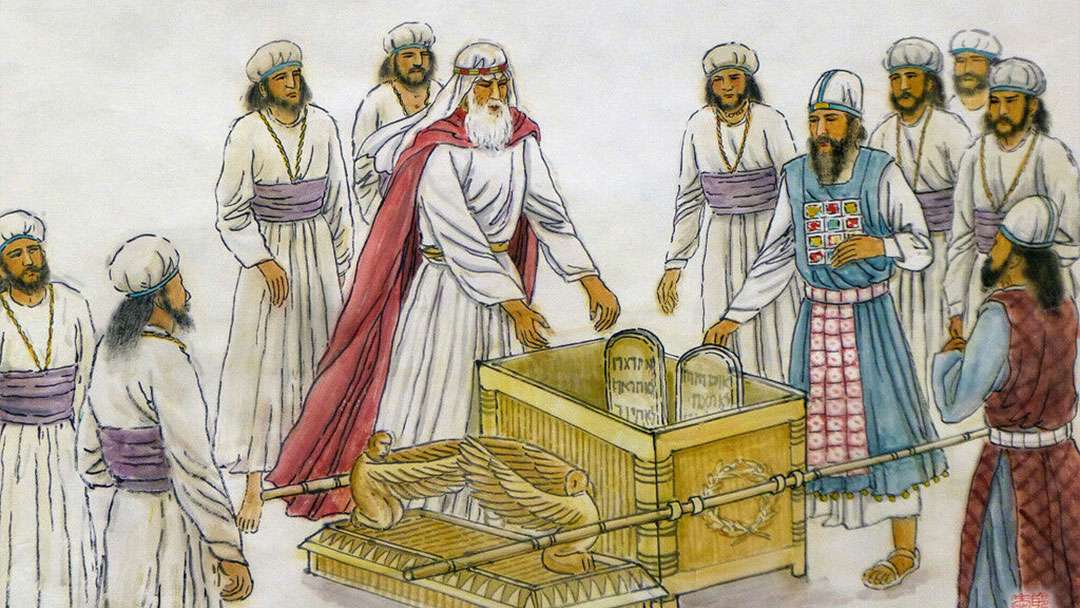This is the third of four articles sharing some thoughts from the Torah portion, or parsha, named Ekev – Deuteronomy 7:12 – 11:25 – in which we read how Moses brings to the Israelites a series of important messages as they prepare to cross the Jordan into the Promised Land after forty years in the wilderness.
As they face the challenge of conquering and settling the land, Moses encourages them to put their trust wholeheartedly in God, and to discover how in His abundant goodness He will lead them into His best for them if they faithfully listen to and obey Him.
Deuteronomy 7:13-16 gives us an appreciation of the immense blessings that the Lord desires to pour out upon His people. But as we have seen, their experience of these many promised blessings is dependent upon a number of important conditions that we discover in our text.
We looked at Psalm 24:3-5 to learn about these conditions. We recall that it was true for the children of Israel – and true for every believer – that “He shall receive blessing from the Lord” who (1) holds fast to the Word of God, (2) displays true humility, and (3) demonstrates obedience to our Lord.
Our Torah passage develops these three important conditions for experiencing the amazing blessing of our God. We considered earlier the importance of holding fast to the Word of God, and of possessing a truly humble heart.
We focus now on the clarion call to the Israelites to be a people who obey their God. In the very first verse (Deuteronomy 7:12) we read: “Then it shall come to pass, because you listen to these judgments, and keep and do them, that the Lord your God will keep with you the covenant and the mercy which He swore to your fathers.”
Moses, the mouthpiece of God, tells His people that their possession of the land will have nothing to do with anything virtuous about them (another reminder about humility), but rather is due to the wickedness of the people to be dispossessed and to God’s faithfulness to His covenant promises:
Deuteronomy 9:4-6: “Do not think in your heart, after the Lord your God has cast them out before you, saying, ‘Because of my righteousness the Lord has brought me in to possess this land’; but it is because of the wickedness of these nations that the Lord is driving them out from before you.
“It is not because of your righteousness or the uprightness of your heart that you go in to possess their land, but because of the wickedness of these nations that the Lord your God drives them out from before you, and that He may fulfill the word which the Lord swore to your fathers, to Abraham, Isaac, and Jacob. Therefore understand that the Lord your God is not giving you this good land to possess because of your righteousness, for you are a stiff-necked people.”
Moses then goes on to catalogue the many instances of the rebellious nature of this ‘stiff-necked people’ during their 40 years in the wilderness. Time and again Israel failed the obedience test.
Deuteronomy 9:7 puts it starkly: “Remember! Do not forget how you provoked the Lord your God to wrath in the wilderness. From the day that you departed from the land of Egypt until you came to this place, you have been rebellious against the Lord.”
Verse 24 is perhaps even starker: “You have been rebellious against the Lord from the day that I knew you.” But these verses only serve to underline the mercy and grace of their God and our God.
After Israel’s sin of idolatry in fashioning and worshipping the golden calf, we read in Deuteronomy 10 of Moses making two new tablets of stone inscribed by God with the Ten Commandments. As Rabbi Ken Spiro explains, “Moses comes back down with the second set of tablets, and this is a clear sign that God has forgiven the Jewish people. What’s the day Moses comes back down? Yom Kippur.
“From Yom Kippur we get the spiritual power of teshuva – of repentance, of returning to closeness with God and repairing relationships with our fellow human beings.”
Some people draw a thick black line between the two testaments in our Bible, implying that the God of the former is different entirely to the God of the Christian Scriptures.
Nothing could be further from the truth! At an individual personal level, recall for a moment the account of Joseph forgiving his brothers for selling him into slavery. That’s a wonderful story that speaks powerfully to people today about forgiving those who wrong us.
Now listen to this statement of God’s forgiveness in Deuteronomy 10:10-11: “As at the first time, I [Moses] stayed in the mountain forty days and forty nights; the Lord also heard me at that time, and the Lord chose not to destroy you. Then the Lord said to me, ‘Arise, begin your journey before the people, that they may go in and possess the land which I swore to their fathers to give them.”
What an amazing God we serve! As philosopher Simon May puts it in his book, Love: A History: “The widespread belief that the Hebrew Bible is all about vengeance and ‘an eye for an eye,’ while the Gospels supposedly invent love as an unconditional and universal value, must therefore count as one of the most extraordinary misunderstandings in all of Western history.”
The contrast often drawn between Christianity as a religion of love and forgiveness and Judaism as a religion of law and vengeance simply doesn’t hold up. Our loving and all-powerful God never changes!
To be continued.












0 Comments